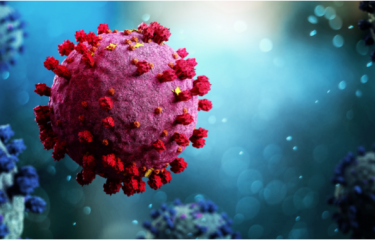How to Combat PIDs in the Specific Case of Tunisia?
Tunisia, like other countries in North Africa and the Middle East, is particularly affected by these primary immune deficiency diseases due to the high rate of consanguinity among its population, which can reach 50% in some rural regions. Faced with this situation, the project "Improving the Care of Tunisian Children with Primary Immune deficiency diseases (ATun-DIP’s)," initiated and led by the Institut Pasteur de Tunis, was launched in 2015 with the financial support of the Direction de la Coopération Internationale de Monaco. The project's goal is to enhance the diagnostic and treatment capabilities for PIDs in children in the regions of Central and Southern Tunisia.
Due to the difficulty of making a diagnosis, it is estimated that the majority of Tunisian patients remain undiagnosed or get a late diagnosis. This is why the project, for the first time, took a comprehensive approach targeting key healthcare stakeholders in Tunisia, including doctors, nurses, laboratories, and, of course, patients and their families.
Under the ATun-DIP’s project, over a hundred physicians (pediatricians and general practitioners) have been trained to improve their expertise in recognizing disease warning signs and establishing an early diagnosis. Furthermore, a training program was provided to upgrade the skills of around thirty nurses, most of whom work in regional healthcare facilities, to better care for patients with specific needs. The trained personnel were prepared to relay the useful information to their colleagues once returned to their institutions or facilities.
This first phase led to the implementation of a novel comprehensive approach that also resulted in the creation of the Tunisian Association of Patients with Primary Immunodeficiencies (ATun -DIPs). In parallel, the Institut Pasteur de Tunis bolstered its reference laboratory capabilities in the immunological and genetic investigation of PIDs to enhance their biological diagnosis. As a result of the actions of the first phase targeting the Central and Southern regions of the country, the average annual number of confirmed cases increased by 26% compared to previous years.
A Second Phase of the Project Extended to Target Other Potential Patients in Tunisia
The second phase of the ATun-DIP’s project was launched in 2021, in a virtual presence of representatives from all project stakeholders, including the Institut Pasteur de Tunis (promoter and principal investigator), the Institut Pasteur (Paris) (administrative and financial coordinator), the Direction de la Coopération Internationale de la Principauté Monégasque (funder), the Directorate of Basic Healthcare of the Tunisian Ministry of Health (partner), the Faculty of Medicine of Tunis (partner), and the Tunisian Association of Patients with Primary Immunodeficiencies (ATun -DIPs).
Thanks to the excellent results of the first phase, particularly in terms of the number of diagnosed patients, the project team will expand its scope to cover the entire Tunisian territory. The activities undertaken during phase 1 in the South and Central regions will continue, but they will now extend to the Northwest regions of the country. Moreover, the study will include adult patients with PIDs since they make up more than half of the patients in international registries. The team will work in partnership with the Faculty of Medicine of Tunis to provide high-quality training for doctors and pediatricians in the Northwest regions. This action will be an integral part of the Faculty-Territory partnership of the Faculty of Medicine of Tunis to sustain this effort.
More Powerful Sequencing Techniques for Better Diagnosis of Primary Immunodeficiencies
To further improve the accuracy of PID diagnosis, more innovative molecular techniques will be employed. In the first phase, the molecular diagnosis was based on the "candidate gene" approach, where each gene known to be potentially responsible for PIDs was sequenced for each patient to identify the source of the genetic defect.
In the second phase, the project team will introduce two new high-throughput sequencing technologies through a collaboration with the BIOMICS platform at the Institut Pasteur (Paris). The first approach will systematically search for genetic defects in a panel of 300 known genes for each patient, including some identified during phase 1. The second technology will, in case the results are inconclusive, perform whole-genome sequencing to search for mutations responsible for PIDs. In addition to confirming the diagnosis, this additional research will help identify new genes associated with PIDs.
Training members of the Institut Pasteur de Tunis in the bioinformatic analysis of data generated by high-throughput sequencing techniques will be provided by collaborators from the Computational Biology Department of the Institut Pasteur (Paris).





